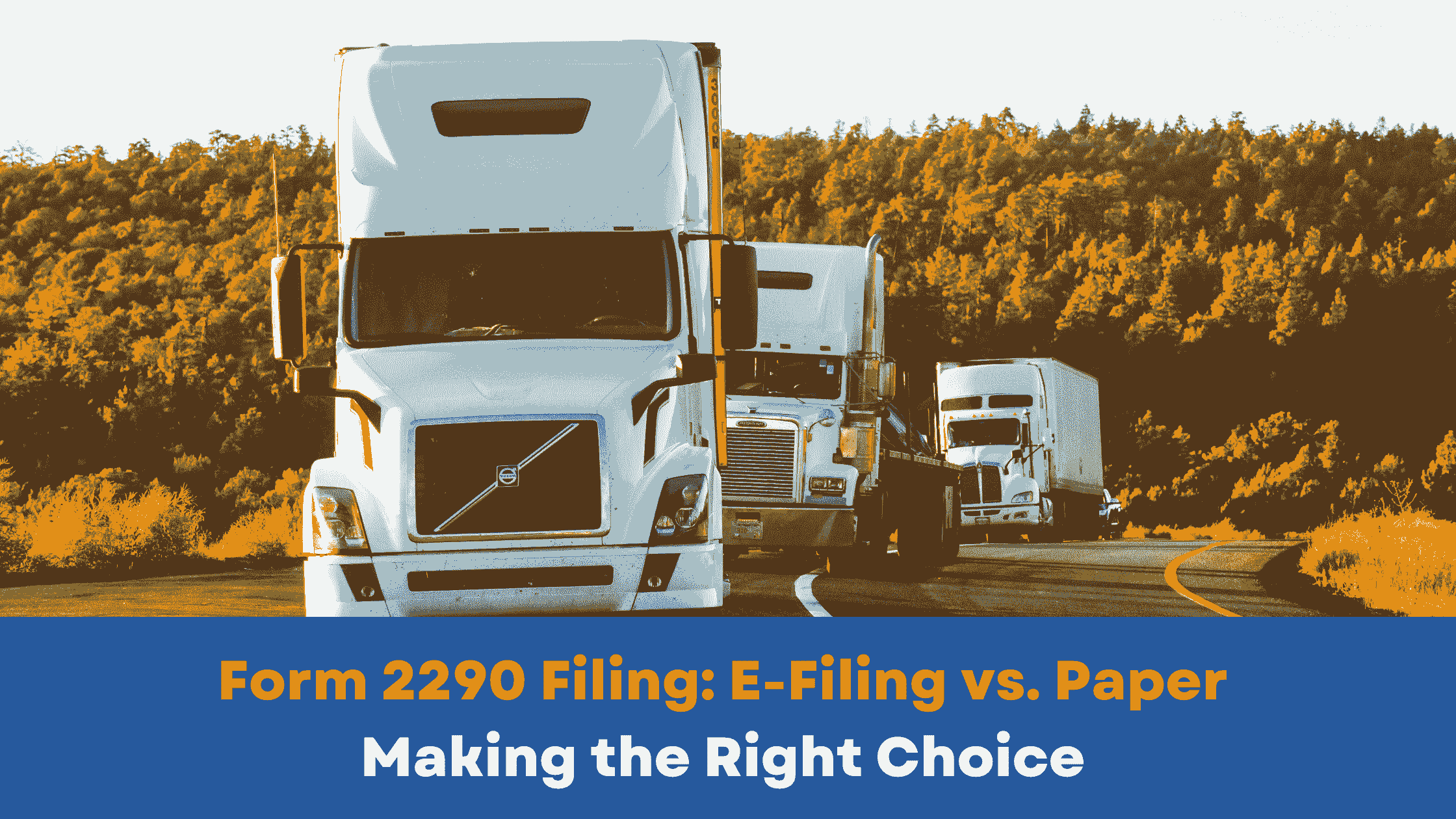12-07-2023
Form 2290 Filing: Online vs. Paper- Making the Right Choice
Form 2290 is a critical document for truck owners, serving as the gateway to the Heavy Vehicle Use Tax (HVUT) that supports the maintenance of highways and infrastructure. However, truck owners are faced with a crucial decision when it comes to 2290 filing: should they be filed online or the traditional paper filing method?
The Basics of Form 2290 Filing
Before diving into the comparison, let's revisit the basics of Form 2290 filing. This IRS form is a mandatory requirement for trucks with a gross weight of 55,000 pounds or more that travel on public highways. The HVUT collected through this form contributes to the upkeep of the very roads these heavy vehicles traverse.
Form 2290 E-Filing: Advantages and Process
Efile Form 2290 has become increasingly popular due to its numerous advantages. It offers a faster, more convenient, and accurate method of submitting Form 2290. Truck owners can complete the entire 2290 filing process online, from entering vehicle details to transmitting the form to the IRS. The electronic system simplifies calculations, reduces errors, and provides instant confirmation of filing. Also, Fleet companies must file their form 2290 online if the company has more than 25 trucks.
Paper Filing: Considerations and Drawbacks
While some truck owners may prefer the familiarity of paper filing, it comes with its set of challenges. The manual process involves filling out a physical form, mailing it to the IRS, and waiting for processing. This method is inherently slower, and errors can occur during data entry or transit. Delays are common, and the risk of misplacement or loss of documents is higher.
A Comparative Analysis
Let's break down the comparison between e-filing and paper filing:
Processing Time:
E-filing offers near-instantaneous processing, while paper filing can take weeks for the IRS to receive, process, and confirm.
Accuracy:
E-filing minimizes errors through automated checks, reducing the chances of mistakes in calculations or data entry that can occur with paper filing.
Accessibility:
E-filed records are easily accessible online, providing a convenient reference point. Paper files, however, may be harder to organize and retrieve.
Environmental Impact:
E-filing contributes to a paperless environment, aligning with sustainability goals. In contrast, paper filing involves physical documents, contributing to resource use.
Check out the blog on choosing the best 2290 E-file provider:
https://blog.simpleform2290.com/blog-details.php/161/12-Tips-for-Choosing-the-Best-2290-E-File-Provider
Compliance and Security:
Both filing methods must adhere to IRS guidelines to ensure compliance. E-filing platforms employ robust security measures to protect sensitive data, and the IRS encourages their use for efficiency and accuracy. Paper filing, while still an accepted method, poses security risks related to physical document handling and mailing.
Cost Considerations:
E-filing often involves a nominal fee for the service, which is outweighed by the time and potential cost savings. Paper filing, on the other hand, may seem cost-effective initially but can lead to hidden costs, such as postage, printing, and potential errors that may incur penalties.
The wrap:
Though both methods have their merits, e-filing with its speed, accuracy, and accessibility, is increasingly becoming the preferred choice for truck owners.
Pa your form 2290 online with us and save your hard-earned money.
File your Form 2290 Now